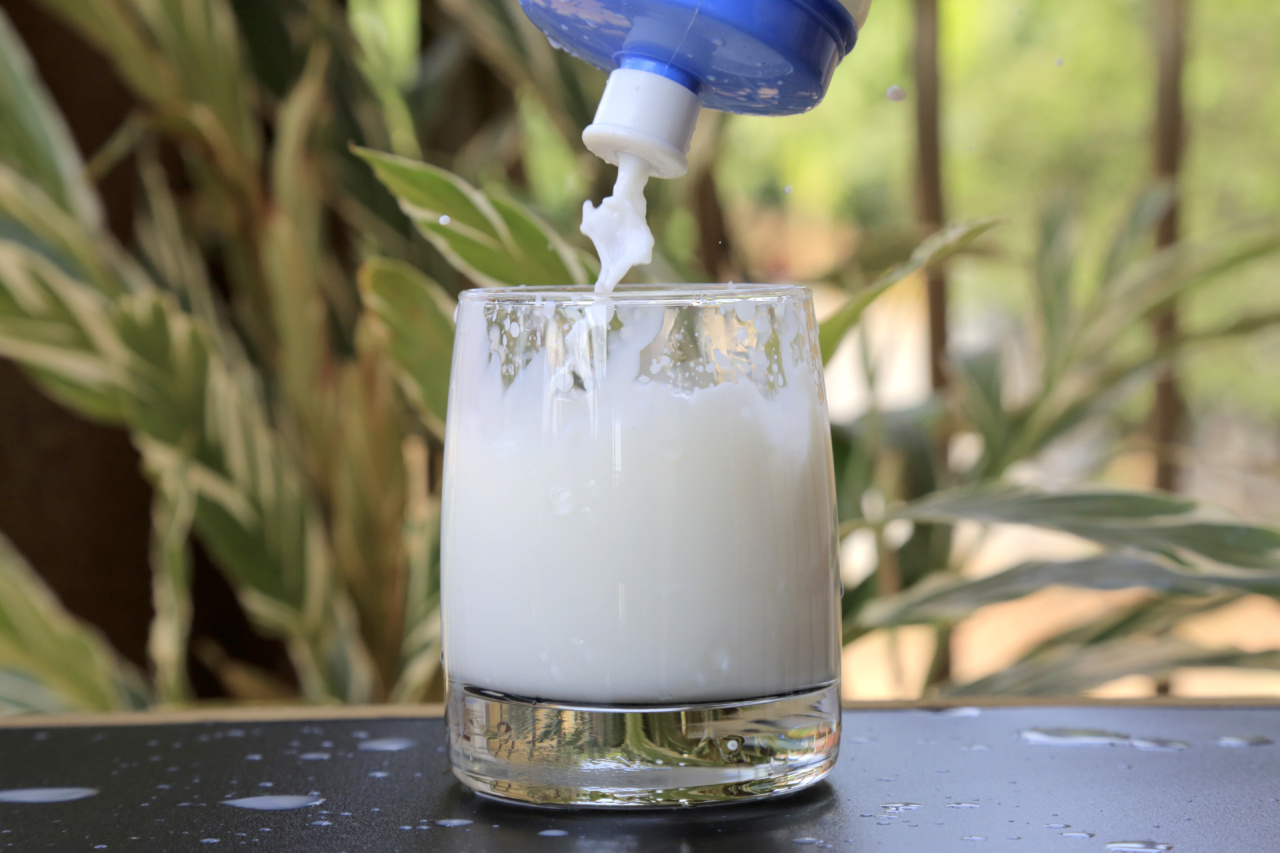Milk is a staple food for many people and is known to provide numerous health benefits. Among its many virtues, milk is considered a natural shield for intestinal health.
The various components present in milk have been found to promote digestive health, prevent gastrointestinal disorders, and support overall well-being. This article explores the positive impact milk can have on intestinal health and sheds light on the science behind its effectiveness.
The Composition of Milk
Before delving into the benefits of milk for intestinal health, it is essential to understand its composition. Milk is a rich source of essential nutrients, including proteins, carbohydrates, fats, vitamins, minerals, and water.
The main proteins found in milk are casein and whey, both of which contribute to its nutritional value. Additionally, milk contains lactose, a type of sugar, which provides energy to the body.
Milk and Digestive Health
Proper digestion is crucial for overall health and well-being. Milk has several properties that support digestive health and help maintain a healthy intestinal environment:.
1. Probiotics in Milk
Milk contains beneficial bacteria known as probiotics, which promote a healthy gut flora. These probiotics help maintain the balance of beneficial bacteria in the intestine, thus preventing the overgrowth of harmful bacteria.
This balance is vital for optimal digestion and absorption of nutrients. Probiotics also assist in strengthening the intestinal barrier function, reducing the risk of infections, and improving overall gut health.
2. Milk as a Source of Calcium
Calcium is an essential mineral for digestive health. Milk is an abundant source of calcium, which plays a vital role in maintaining the integrity of the intestinal lining.
Adequate calcium intake helps prevent conditions such as inflammatory bowel disease, irritable bowel syndrome, and leaky gut syndrome. Moreover, calcium contributes to the regulation of gut motility, promoting regular bowel movements and preventing constipation.
3. Milk and Vitamin D
Vitamin D is necessary for the absorption of calcium in the body. Milk is often fortified with vitamin D, which enhances the effectiveness of calcium in promoting intestinal health.
Vitamin D also plays a role in modulating the immune system, reducing the risk of autoimmune diseases, and maintaining a healthy gut barrier.
4. Soothing Properties of Milk
Milk has been traditionally used as a soothing remedy for digestive discomfort. Drinking a warm glass of milk can alleviate indigestion, acid reflux, and other gastrointestinal issues.
The proteins in milk have a calming effect on the digestive system, reducing inflammation and promoting comfort.
Milk and Gastrointestinal Disorders
Research suggests that milk consumption can help prevent and manage various gastrointestinal disorders:.
1. Irritable Bowel Syndrome (IBS)
Irritable bowel syndrome is a common digestive disorder characterized by symptoms like abdominal pain, bloating, and altered bowel habits. Milk has been found to alleviate symptoms of IBS due to its soothing properties.
Additionally, milk proteins contain bioactive peptides that have anti-inflammatory and antimicrobial effects in the gut, providing relief to individuals with IBS.
2. Inflammatory Bowel Disease (IBD)
Inflammatory bowel diseases, such as Crohn’s disease and ulcerative colitis, cause chronic inflammation in the digestive tract.
Studies have shown that milk proteins and their bioactive peptides have a protective effect against inflammation in the intestines. Furthermore, the calcium and vitamin D in milk help maintain bone health in individuals with IBD who may be at a higher risk of osteoporosis due to malabsorption.
3. Lactose Intolerance
While lactose intolerance is not a gastrointestinal disorder per se, it is a condition that affects many individuals worldwide. Lactose intolerance is the inability to digest lactose, the sugar present in milk.
However, lactose-free milk and lactase supplements enable individuals with lactose intolerance to enjoy the benefits of milk without any adverse effects.
4. Gut Microbiota
The gut microbiota plays a crucial role in maintaining overall health. Studies have revealed that milk consumption can positively impact the gut microbiota composition.
Beneficial bacteria, such as Lactobacillus and Bifidobacterium, thrive in the presence of milk, contributing to a diverse and healthy gut microbiome.
Taking Advantage of Milk for Intestinal Health
To make the most of milk’s benefits for intestinal health, consider the following points:.
1. Choosing the Right Type of Milk
When selecting milk, opt for organic and minimally processed varieties whenever possible. Milk that comes from grass-fed cows or is fortified with additional nutrients can provide extra benefits for intestinal health.
2. Moderation is Key
While milk offers numerous health advantages, it should be consumed in moderation. Excessive consumption of milk can lead to an imbalance in nutrient intake and may not be suitable for individuals with certain health conditions.
3. Combining Milk with a Balanced Diet
Milk should be considered as part of a well-balanced diet. Incorporating fruits, vegetables, whole grains, and other nutrient-rich foods alongside milk can help support overall intestinal health.
4. Consultation with a Healthcare Professional
If you have existing gastrointestinal conditions or concerns, it is advised to consult with a healthcare professional or a registered dietitian. They can provide personalized recommendations based on your specific needs and medical history.
In Conclusion
Milk is indeed a natural shield for intestinal health. Its various constituents, such as probiotics, calcium, vitamin D, and soothing properties, contribute to its positive effects on digestion and overall gut well-being.
Incorporating milk into a balanced diet, along with healthy lifestyle choices, can help maintain a healthy intestinal environment. However, it is crucial to consume milk in moderation and consult with healthcare professionals when necessary.






























